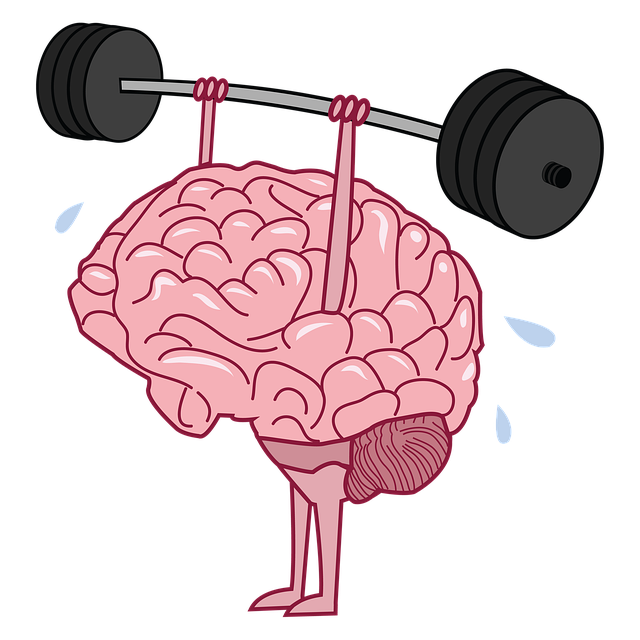Crisis Intervention Teams (CITs) offer crucial support to young adults facing mental health challenges, addressing rising youth anxiety in a holistic manner. Combining professional interventions with community-based initiatives, these teams revolutionize therapy, especially within the context of Christian counseling. Through spiritual guidance and evidence-based practices, CITs foster emotional intelligence and resilience. Effective training programs emphasize mental health literacy, risk assessment, trauma-informed care, team dynamics, and public awareness campaigns. Comprehensive training simulates diverse crisis scenarios, empowering counselors to provide immediate support and address systemic issues. This approach has positively impacted lives by offering hope, healing, and improved communication skills, particularly for young adults from diverse cultural backgrounds.
Crisis intervention team training programs are essential resources for equipping professionals with the skills to support young adults in emergency situations. This article explores the critical role of crisis intervention teams, highlighting the unique contribution of Christian counseling in providing immediate emotional support. We delve into the key components of effective training and prepare mentors and counselors to handle real-world crises. Additionally, we share inspiring success stories from crisis intervention programs that have transformed lives, emphasizing the impact of therapy for young adults through specialized counseling approaches.
- Understanding Crisis Intervention Teams: A Vital Resource for Young Adults
- The Role of Christian Counseling in Emergency Support
- Essential Components of Effective Crisis Team Training
- Preparing Mentors and Counselors for Real-World Scenarios
- Success Stories: Transforming Lives Through Crisis Intervention Programs
Understanding Crisis Intervention Teams: A Vital Resource for Young Adults

Crisis Intervention Teams (CITs) are a vital resource for young adults navigating mental health challenges. These specialized teams, often comprising trained volunteers or professionals, provide immediate support during crises, ensuring swift access to care. In today’s fast-paced world, where mental health issues among youth are on the rise, CITs offer a crucial safety net, offering not just short-term relief but also guidance towards long-term mental wellness.
For young adults seeking therapy for mental health concerns, particularly within the framework of Christian counseling, CITs can be instrumental in fostering positive thinking and resilience. By integrating these teams into support networks, individuals can benefit from collaborative care models that address acute episodes while promoting ongoing mental wellness. This comprehensive approach, which combines professional interventions with community-based initiatives, is a game-changer in the field of mental health care, especially for vulnerable young adults who may face barriers to accessing traditional therapy services.
The Role of Christian Counseling in Emergency Support

In the realm of emergency support, particularly within crisis intervention team training programs, Christian counseling plays a pivotal role in providing therapeutic assistance to young adults facing emotional distress. This approach is rooted in the belief that spiritual connection and guidance can significantly contribute to an individual’s emotional intelligence and overall well-being. By integrating faith with evidence-based practices, therapists equipped with Christian counseling techniques offer a unique form of crisis intervention guidance tailored to meet the diverse needs of this demographic.
The integration of therapy for young adults within the context of Christian counseling equips professionals with valuable tools for promoting emotional well-being. These programs often focus on fostering emotional intelligence by teaching individuals coping strategies that are aligned with their personal values and spiritual beliefs. Through Crisis Intervention Guidance, participants learn to navigate challenging situations, encouraging self-awareness and resilience—essential components in preventing future crises. This holistic approach ensures that young adults receive not just technical support but also a sense of purpose and inner strength during times of crisis.
Essential Components of Effective Crisis Team Training

Effective crisis intervention team training programs are multifaceted, designed to equip professionals with the skills and knowledge needed to handle various crises. A strong foundation in mental health principles is crucial, including an understanding of common youth issues such as anxiety, depression, and substance abuse—especially when tailored for young adults seeking Christian counseling. These programs should also incorporate practical strategies for risk assessment, de-escalation techniques, and crisis management protocols.
Beyond individual skill development, fostering strong team dynamics is vital. Training should encourage open communication, collaboration, and mutual support among team members. This includes integrating social skills training to enhance interpersonal relationships and public awareness campaigns to educate the community about recognizing and responding to crises effectively. Additionally, trauma-informed care approaches ensure that team members can provide compassionate support while minimizing retraumatization, thereby enhancing overall crisis intervention outcomes.
Preparing Mentors and Counselors for Real-World Scenarios

Preparing mentors and counselors for real-world scenarios is a critical component of crisis intervention team training programs. These programs equip professionals with the skills to handle diverse, often unpredictable, situations that arise in therapy for young adults seeking Christian counseling. By simulating and role-playing various crises, from academic pressures to personal identity struggles, trainees gain confidence in their ability to offer immediate and effective support.
The integration of mental health education programs design emphasizes not just technical proficiency but also emotional resilience. Burnout prevention strategies are woven into the fabric of these training sessions to ensure counselors can navigate high-stress situations without compromising their own well-being. Equally important is mental health policy analysis and advocacy, empowering trainees to address systemic issues that often contribute to individual crises. Through this holistic approach, crisis intervention team members become empowered to make a lasting impact in the lives of young adults facing challenging circumstances.
Success Stories: Transforming Lives Through Crisis Intervention Programs

Many lives have been transformed through crisis intervention team training programs, offering hope and healing to individuals facing seemingly insurmountable challenges. These programs, often centered around Christian counseling for young adults, provide a safe space for self-esteem improvement and inner strength development. Participants learn effective communication skills, enabling them to navigate complex situations with newfound confidence. The integration of therapy for young adults within these interventions has proven particularly impactful, addressing the unique psychological needs of this demographic.
Success stories from these programs highlight the power of cultural sensitivity in mental healthcare practice. By acknowledging and respecting diverse backgrounds, crisis intervention teams foster inclusive environments that resonate with individuals from various cultures. This approach not only enhances the effectiveness of the interventions but also encourages participants to open up and engage more deeply in their healing journeys. Through dedicated training and support, these programs have become catalysts for positive change, empowering individuals to overcome crises and embrace a brighter future.
Crisis intervention team training programs, emphasizing therapy for young adults and incorporating Christian counseling techniques, have proven to be game-changers in emergency support. By equipping mentors and counselors with essential skills, these programs enable them to navigate real-world scenarios effectively, fostering positive outcomes for vulnerable individuals. The success stories highlighted demonstrate the profound impact of well-structured crisis intervention initiatives, ultimately transforming lives and communities.














